Results and evaluation
| | This section is empty. You can help by adding to it. (September 2013) |
Draw limit is a restriction on number of games drawn in a season. It was an administrative measure in league football competitions that was implemented in the Soviet Union by the Football Federation of the Soviet Union in 1978-1988.
The reason for such measure was to fight match fixing as well as increase the entertainment and intensity of the national championship. The limit provided that over certain set number of allowed draws no points were awarded for any additional drawn games. For example, if the Federation set the draw limit at 10 for a given championship, points were awarded to teams only for the first 10 drawn games and none for any additional.
What led to such phenomena was a scientific approach towards football, search for variety of methods that would allow to win strictly prudently without risk. Especially such approach gained strength in the Soviet football in 1970s (see also UEFA coefficients#History ). There appeared a whole group of coaches who have striven to build the game of their teams "scholarly", football was firmly seized by pragmatism and calculation. Scientists of football have estimated that for winning the first place in round robin tournament it is necessary as a rule to gain 75% of points: such result was formed, for example, when to win all home games and to draw the away games. From here two models were invented: away and home. [1] Thereby a percent of draws in championships gradually started to grow and in the 1977 championship grew to 44.6%. For the first time started to talk about match fixing and in 1978 in order to deal with match fixing there was imposed a limit on the games drawn which there could have been eight (later 10) in one season. At first it seemed that the given decision was beneficial and the percent of draws dropped in the following championship, [2] but the problem of match fixing was left unresolved in fact.
Draw limit was active in the Soviet championships in 1978-1988 for 11 seasons.
| | This section is empty. You can help by adding to it. (September 2013) |
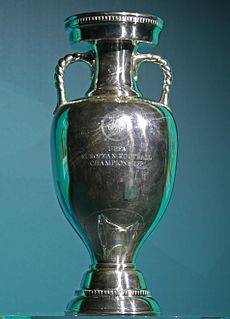
The UEFA European Football Championship, less formally the European Championship and informally the Euros, is the primary association football tournament contested by the senior men's national teams of the members of the Union of European Football Associations (UEFA), determining the continental champion of Europe. The competition has been held every four years since 1960, except for 2020, when it was postponed until 2021 due to the COVID-19 pandemic in Europe. Scheduled to be in the even-numbered year between FIFA World Cup tournaments, it was originally called the European Nations' Cup, changing to the current name in 1968. The individual events are branded in the form of "UEFA Euro [year]".

The 1992 UEFA European Football Championship was hosted by Sweden between 10 and 26 June 1992. It was the ninth UEFA European Championship, which is held every four years and supported by UEFA.

The 1988 UEFA European Football Championship final tournament was held in West Germany from 10 to 25 June 1988. It was the eighth UEFA European Championship, which is held every four years and supported by UEFA.
A draw or tie occurs in a competitive sport when the results are identical or inconclusive. Ties or draws are possible in some, but not all, sports and games. Such an outcome, sometimes referred to as deadlock, can also occur in other areas of life such as politics, business, and wherever there are different factions regarding an issue. In some sports, such as cricket, a tie and a draw have different meanings.
In a sport or game, sudden death is a form of competition where play ends as soon as one competitor is ahead of the others, with that competitor becoming the winner. Sudden death is typically used as a tiebreaker when a contest is tied at the end of regulation (normal) playing time or the completion of the normal playing task.
In organized sports, match fixing occurs as a match is played to a completely or partially pre-determined result, violating the rules of the game and often the law. The most common reason is to obtain a payoff from gamblers, but teams may also intentionally perform poorly to gain a future advantage, such as a better draft pick or, on paper, a less eminent opponent in a play-off. A player might also play poorly to rig a handicap system.

The Latvia national football team represents Latvia in international football and is controlled by the Latvian Football Federation, the governing body for football in Latvia. They have never qualified for the FIFA World Cup, however, they qualified for the European Championship in 2004 under head coach Aleksandrs Starkovs.
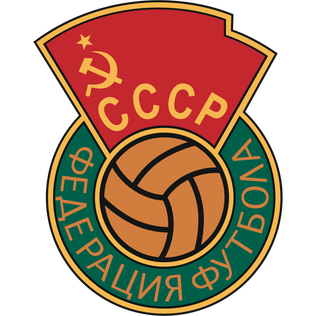
The Soviet Union national football team was the national football team of the Soviet Union.
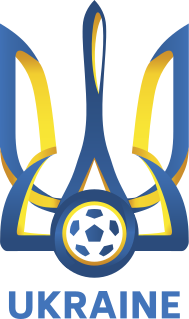
The Ukraine national football team represents Ukraine in men's international football competitions and it is governed by the Ukrainian Association of Football, the governing body for football in Ukraine. Ukraine's home ground is the Olimpiyskiy Stadium in Kyiv. The team has been a full member of UEFA and FIFA since 1992.
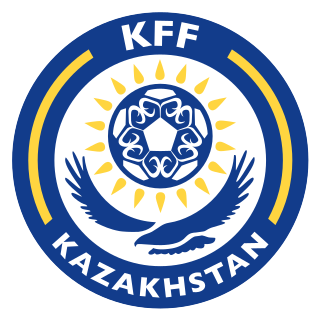
The Kazakhstan national football team represents Kazakhstan in men's international football and it is governed by the Kazakhstan Football Federation. They split from the Soviet Union national football team after independence in 1991 and joined the Asian Football Confederation's Central Asian Football Federation. After failing to qualify for the 1998 and 2002 FIFA World Cups, they joined UEFA, but are yet to qualify for a FIFA World Cup or a UEFA European Championship.
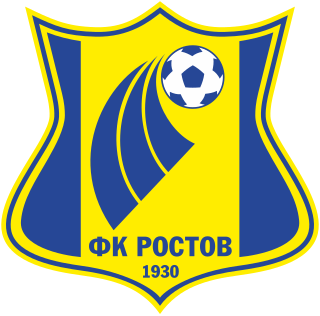
FC Rostov is a Russian professional football club based in Rostov-on-Don, Rostov Oblast. The club are members of the Russian Premier League and play at the Rostov Arena.

The Ukrainian Premier League or UPL is the highest division of Ukrainian annual football championship. As the Vyshcha Liha it was formed in 1991 as part of the 1992 Ukrainian football championship upon discontinuation of the 1991 Soviet football championship and included the Ukraine-based clubs that competed previously in the Soviet top three tiers competitions as well as better clubs of the Ukrainian republican competitions. The initial season of the league featured six former Soviet Top League clubs among which were Dynamo, Shakhtar, Chornomorets, Dnipro, Metalist, Metalurh as well as four more clubs that previously also competed at the top league.

Football Club Metalist Kharkiv is a Ukrainian football club based in Kharkiv that will play in the Ukrainian First League during the 2021–22 season. It was revived 5 years after the original FC Metalist Kharkiv ceased operations.
The Soviet First League in football was the second highest division of Soviet football, below the Soviet Top League.
Three points for a win is a standard used in many sports leagues and group tournaments, especially in association football, in which three points are awarded to the team winning a match, with no points awarded to the losing team. If the game is drawn, each team receives one point. The system places additional value on wins compared to draws such that teams with a higher number of wins may rank higher in tables than teams with a lower number of wins but more draws.
Daniel Joseph "Don" Givens is an Irish former footballer and coach. A forward, Givens played club football for Manchester United, Luton Town, Queens Park Rangers, Birmingham City, AFC Bournemouth, Sheffield United and Neuchâtel Xamax, and was capped 56 times for the Republic of Ireland. His 19 senior international goals was a national record for several years. He went on to coach at Xamax and Arsenal, and spent ten years as manager of the Republic of Ireland U21 team.
In a group tournament, unlike a knockout tournament, there is no scheduled decisive final match. Instead, all the competitors are ranked by examining the results of all the matches played in the tournament. Typically, points are awarded for each match, with competitors ranked based either on total number of points or average points per match. Alternatively, competitors may instead be ranked by winning percentage, defined as the number of wins divided by the total number of matches played.

Ramaz Shengelia was a Georgian and Soviet football player.
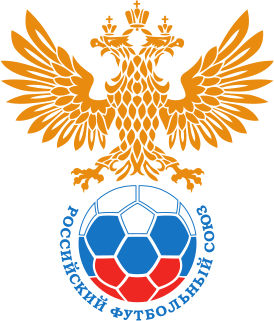
The Russia national football team represents the Russian Federation in men's international football and is controlled by the Russian Football Union, the governing body for football in Russia. Russia's home ground is the Luzhniki Stadium in Moscow.

The 2016–17 UEFA Champions League was the 62nd season of Europe's premier club football tournament organised by UEFA, and the 25th season since it was renamed from the European Champion Clubs' Cup to the UEFA Champions League.